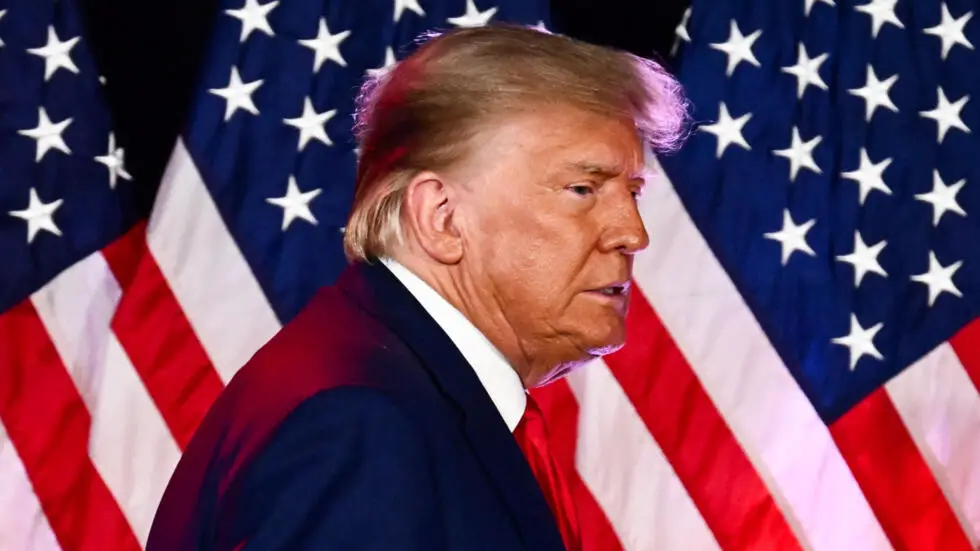Related Posts
The United States Supreme Court has given the green light for Donald Trump’s name to be in this year’s presidential ballots, negating nationwide attempts to disqualify him under a seldom-invoked constitutional clause targeted at insurrectionists.

Overturning the Colorado Supreme Court Decision
The Supreme Court’s judgment reverses a previous Colorado Supreme Court decision. This earlier ruling stated that Trump had lost his opportunity to run for president again by trying to overturn the results of his election loss in 2020.
One day before Super Tuesday, the Supreme Court reversed this judgment at a pivotal point in the election cycle. With Colorado and 14 other states and a territory hosting presidential primaries today, this event marks a significant turning point in the electoral process. Because the Supreme Court’s decision might affect the outcome of these primaries, it is imperative to consider the timing of the decision.
The Court’s Rationale and Division
In a landmark 13-page decision, the Supreme Court made it clear that Congress alone has the authority to invoke Section 3 of the 14th Amendment. This Amendment, which has generated much debate, is intended to be used against candidates for federal office. The Supreme Court ruled that states are not constitutionally authoritative to enforce this provision, particularly concerning the nation’s highest office, the presidency.
This decision essentially ended legal proceedings in several other states, including Maine and Illinois, where authorities attempted to declare Trump unfit to run for office. Though the Supreme Court justices reached a unanimous verdict about the case’s outcome, their reasoning exposed ideological differences.
Sonia Sotomayor, Elena Kagan, and Ketanji Brown Jackson—three liberal justices—voiced concerns over the court’s logic. They contended that the court had overreached itself in making its decision. Their main worry was the view that the Constitution’s insurrection provision could not be implemented until Congress had passed legislation first. According to this viewpoint, the court’s reading of the legislation went beyond what was required, possibly establishing a precedent for similar instances using the insurrection clause in the future.
Implications for Trump’s Presidential Bid
The Supreme Court’s historic ruling will significantly impact Trump’s presidential campaign. This decision provides his campaign with great relief by removing the necessity for state-by-state legal disputes on his eligibility.
In addition, the ruling of the Supreme Court clarifies the interpretation of a controversial post-Civil War constitutional provision. This phrase is now interpreted to allow Trump to run for reelection even though it initially threatened his candidacy.
Nevertheless, Trump hasn’t won outright with this decision. In addition to leaving open the possibility that Congress could decide to withhold Trump’s electoral votes should he win in November, the Supreme Court declined to expressly support Trump’s assertion that he was not a part of the insurrection. While permitting Trump to seek office, the Supreme Court’s decision did not absolve him of accountability for the events at the Capitol on January 6, 2021.
Trump has shown optimism as he considers today’s Super Tuesday primaries. At this time, he is well ahead of his only opponent and former UN Ambassador Nikki Haley. His confidence hints at a potential major win in the primaries that will leave him with no question about how bright his road to the Republican nomination is.
The Colorado Case and CREW’s Stand

The Colorado case and the stance taken by CREW have emerged from the filing of this lawsuit with a group of voters represented by Citizens for Responsibility and Ethics in Washington (CREW), leading to this landmark decision. The plaintiffs argued that Former President Donald Trump was a significant figure in a provocative campaign that sought to undermine President Joe Biden’s transfer of power, which American institutions claimed to have been fair, free, and widely recognized. They stated that it was not just his rhetoric but also his actions that had fanned discontent. Moreover, they argued that he actively provoked the violent uprising at the Capitol on January 6, 2021.
Based on information from a non-profit organization called CREW, this group primarily promotes ethical behavior and public service accountability. The organization mentioned that sufficient evidence linking Trump to a plot of insurrection had come out of a detailed five-day inquiry held in Colorado. They argued that this should preclude him from standing for federal office per the 14th Amendment.
Noah Bookbinder, the president of CREW, said after the Supreme Court’s ruling that he did not consider it favorable to Trump. He stressed that though the Supreme Court allowed Trump to contest the elections again, they did so for purely technical legal reasons.
Bookbinder argued that any court or decision-making body that has given the matter a full investigation has agreed that the events of January 6 were nothing but an uprising and Donald Trump is the one responsible for inciting it. The speaker further said that based on this, the refusal of the Supreme Court to vindicate Trump in this case is a clear indicator of grave accusations against him.


[…] undocumented spouses policy is receiving blowback from Donald Trump and other Republicans. Trump revealed that Biden’s policy would be “ripped and thrown out” if […]